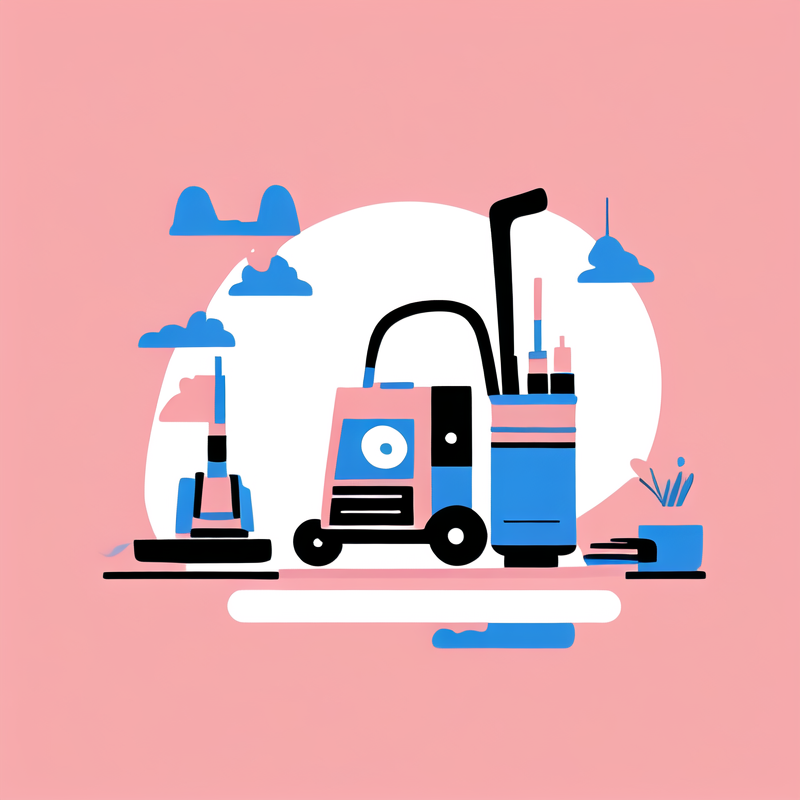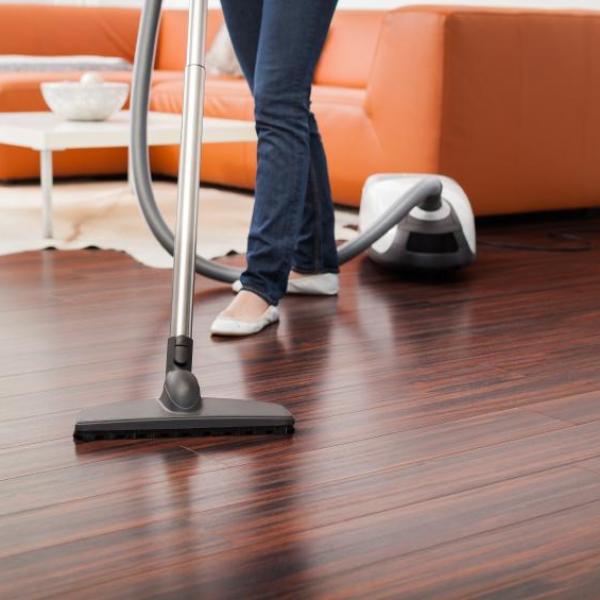Introduction to Vacuum Cleaner Lifespan
How long should a vacuum cleaner last? When shopping for vacuum cleaners, a common question is ‘how long should a vacuum cleaner last?’. The lifespan of a vacuum cleaner can vary significantly based on various factors. Typically, you can expect a well-made vacuum cleaner to last between five to eight years. However, some may continue to operate effectively for a decade or more with proper care.

Understanding the lifespan expectations helps in making an informed purchase and maintaining a vacuum cleaner over time. Each vacuum cleaner comes with its set of guidelines and recommendations for maintenance, which are vital for extending its life. By following tips and tricks for proper usage and regular care, you can ensure that your investment remains functional for as long as possible. Durability varies by brand, model, and how the vacuum cleaner is used and maintained. In the following sections, we’ll discuss factors that influence longevity, maintenance tips, best usage practices, and more to help you maximize your vacuum cleaner’s lifespan.
Key Factors Influencing Vacuum Cleaner Longevity
Understanding the main factors that impact how long a vacuum cleaner last is crucial. Here are key elements that determine the lifespan of your cleaning companion:
Type and Quality of the Vacuum Cleaner
Better quality often means longer lifespan. High-end models with sturdy construction can endure more and last longer. Cheaper, less durable models may not withstand regular use for many years.
Frequency of Use
How often you vacuum plays a role. Daily use puts more wear and tear on the device compared to weekly use. More frequent use requires more maintenance to keep the vacuum running well.

Maintenance and Upkeep
Regular cleaning and replacing parts like filters and bags extend a vacuum cleaner’s life. A neglected machine is likely to break down sooner.
Cleaning Environment
The type of debris and the surface being cleaned affect durability. Vacuums used in rough environments with lots of hair, dust, or large particles wear out faster.
Storage Conditions
Proper storage keeps a vacuum safe from damage. Store your vacuum in a dry, clean area to prevent environmental damage.
By considering these factors, you can predict and enhance the longevity of your vacuum cleaner, ensuring it remains a reliable tool for keeping your space clean.
Regular Maintenance for Your Vacuum Cleaner
Regular maintenance is key to keeping your vacuum cleaner running smoothly for years. Here are essential maintenance tips to follow:
Clean or Replace Filters Regularly
Filters trap dust and debris, but over time, they can clog. Check filters often and clean or replace them as needed.
Empty and Clean the Dustbin After Use
Don’t let the dustbin overflow. Empty it after each use and wipe it down to prevent buildup.
Inspect and Clean Brushes and Nozzles
Hair and threads can tangle around brushes and nozzles. Cut away these obstructions and clear out any trapped debris.
Check and Replace Bags, if applicable
If your vacuum uses bags, change them before they’re full. Overfilled bags reduce suction and efficiency.
Monitor and Replace Belts as Necessary
Worn belts can affect performance. If you notice any slipping or squeaking, it may be time for a replacement.
Keep the Vacuum’s Exterior Clean
Dust and grime on the exterior can get inside the machine. Wipe down the vacuum’s body regularly.
These steps not only help ‘how long should a vacuum cleaner last’ but also ensure that it performs at its best. Regular attention can mean the difference between replacing a vacuum every few years or enjoying it for much longer.
Best Practices for Vacuum Cleaner Usage
To keep your vacuum cleaner running efficiently and to prolong its lifespan, it’s important to adopt some best practices for usage. Incorporating these simple habits into your cleaning routine can have a tremendous impact on ‘how long should a vacuum cleaner last’.
Use the Correct Vacuum Cleaner Setting
Always select the right setting for the surface you’re cleaning. Carpets may require a different setting than hardwood floors. Using the appropriate setting ensures effective cleaning and reduces unnecessary stress on your vacuum.
Don’t Overload Your Vacuum Cleaner
Be mindful of the size and quantity of debris you’re vacuuming. Large items can clog passages and damage the vacuum. Regularly check the brush roll and hose to avoid blockages.
Vacuum with Care
Move your vacuum slowly and steadily. Rushing can cause you to miss spots and overwork the motor. Take your time to ensure a thorough clean and prevent undue wear and tear.
Avoid vacuuming Sharp Objects
Sharp objects like glass or metal pieces can damage the interior components of your vacuum cleaner. Always check the area and pick up such hazards before vacuuming.
Do Not Pull on the Power Cord
Pulling on the cord can damage the electrical contacts and the retracting mechanism. Always walk back to the outlet to unplug the vacuum cord.
Following these practices will help ensure that your vacuum cleaner operates at peak efficiency and enjoys a long service life. By protecting your vacuum from common usage pitfalls, you increase the likelihood of it lasting for many years to come.
Choosing the Right Vacuum Cleaner for Durability
Choosing a durable vacuum cleaner is as important as maintaining one. When you look for a vacuum that will last, consider these points. First, research brands known for long-lasting products. Check reviews and ratings for user experiences. Pick a vacuum cleaner with a solid warranty. A longer warranty may signal better durability. Second, opt for models with sturdy build materials. Metal components might outlast plastic ones. Third, look for vacuums with easily replaceable parts. Easy access to filters, bags, and belts can make upkeep simpler. Consider vacuums with service networks allowing for parts replacement and repairs. Lastly, think about your cleaning needs. Choose a vacuum that fits the type of use it will see. A vacuum for daily use may need to be more robust than one used less frequently.
Remember, investing in the right vacuum can mean fewer replacements down the line. Durability often saves money and hassle. So, ask ‘how long should a vacuum cleaner last?’, then pick a model designed for that lifespan.
Troubleshooting Common Vacuum Cleaner Issues
Even the best-maintained vacuum cleaners can encounter problems. Knowing how to solve common issues can extend a vacuum’s lifespan. Here are common vacuum troubles and how to fix them.
Loss of Suction
Weak suction often comes from a clogged filter or a full bag. Check and clean the filter or replace the bag. Look for blockages in the hose, too.
Unusual Noises
A loud or strange noise could mean a blockage or a damaged belt. Turn off the vacuum and clear any clogs. Inspect belts for wear and replace if needed.
Vacuum Does Not Turn On
If the vacuum won’t start, check the power cord and outlet first. Ensure the cord is not damaged and the outlet works. Check the vacuum’s fuse and replace it if blown.
Poor Performance on Carpet or Hard Floors
Adjust the setting to match the floor type. Wrong settings can affect cleaning efficiency. Change the brush roll if it looks worn.
Strange Smell
A burning smell can indicate a motor problem. Turn off the vacuum and have it inspected by a professional. Clean buildup from the vacuum parts to avoid smells.
Being able to address these issues can answer the question, ‘how long should a vacuum cleaner last?’ as it helps prevent minor problems from turning into major ones, thereby maximizing the vacuum’s potential lifespan.
When to Repair vs. Replace Your Vacuum Cleaner
Deciding whether to repair or replace a vacuum cleaner affects its lifespan. Consider these factors:
Assess the Cost of Repairs
Compare repair costs with the price of a new vacuum. If repairs exceed half the cost of a new model, consider replacement.
Check the Age of Your Vacuum
Think about ‘how long should a vacuum cleaner last’ and your vacuum’s age. If it’s near the end of its expected lifespan, replacement might be wiser.
Evaluate the Vacuum’s Performance
Does it clean as well as before? If performance has dropped despite maintenance, it might be time for a new one.
Consider Frequency of Breakdowns
Frequent issues can signal it’s time to update. Consistent breakdowns are not only frustrating but also costly in the long run.
Warranty Status
If the warranty has expired, future repairs could be expensive. A valid warranty may sway the decision towards repair.
Technological Advancements
New vacuum models come with improved features and efficiency. If your old vacuum is outdated, upgrading might be beneficial.
Making the right call between repairing and replacing can contribute significantly to ‘how long should a vacuum cleaner last’. A well-timed replacement can save you money and hassle over time.
Enhancing Vacuum Cleaner Performance with Upgrades and Accessories
To make sure your vacuum cleaner lasts longer, consider upgrades and accessories. These enhancements can improve cleaning efficiency and extend your vacuum’s life. Here’s how to boost your vacuum’s performance.
Choose High-Quality Replacement Parts
Always pick top-notch filters, bags, and belts. Quality parts keep your vacuum working well and lasting longer.
Add Specialized Brushes or Nozzles
These tools tackle pet hair, tight spaces, and delicate surfaces. They ensure a thorough clean without straining your vacuum.
Invest in a Motorized Brush Roll
A powered brush roll lifts more dirt, especially from carpets. It can give your vacuum a power boost.
Consider a Battery Upgrade
For cordless models, a longer-lasting battery means more cleaning time. It avoids the strain of constant recharges.
Look for HEPA Filters
HEPA filters trap fine particles better. They can prolong your vacuum’s life by keeping the motor clean.
Adding these upgrades and accessories helps answer ‘how long should a vacuum cleaner last’. They can keep your vacuum running smoothly for many years.



